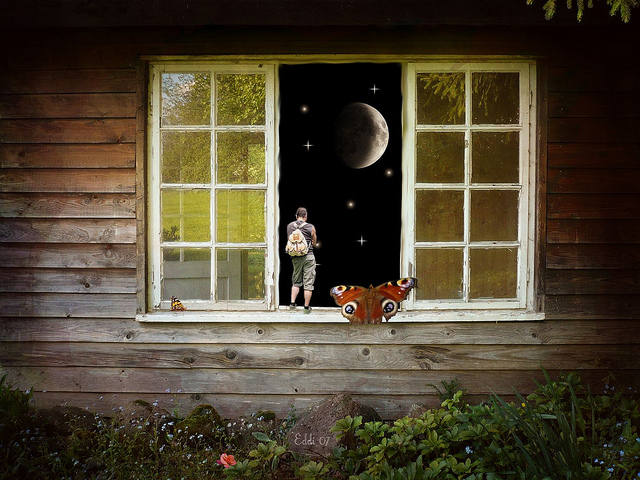When I started regularly attending yoga classes about ten years ago, I was the one who stuck out in the studio.
All I wanted was to do something that felt good for me, and to be somewhere where I felt that I belonged.
Eventually, I found the studio that was the right fit for me, but I was not getting the sense of community I had hoped for—on some level, admittedly, due to a lack of effort on my part.
I eventually found a little tribe, and that tribe is part of larger tribe, and that larger tribe is part of what I like to think of as humanity.
Ideally, our communities are not about superficial layers—or styles of yoga that we believe to be the latest and greatest, or oldest and more revered—but rather about how we are relating to one another.
I look around, though, and I see what we are doing.
I see the way even people who are close to me judge me for my beliefs, and I see the way that others judge based off of their own belief systems.
I know that there are other words used to term this issue, but I refer to it as “Spiritual Elitism.”
My beliefs are better than yours, therefore I am better than you.
Or, we share very similar beliefs, but I am better at living them out and walking my talk, so I am going to judge you, passive aggressively, for being a failure to our little code.
Sadly, the same dynamic can happen between two people as can happen between two cultures or countries.
But before you close out of this article because you want to plant your forehead on your keyboard because I am just another naïve writer pleading her case for world peace, please read me out on this one.
I am bothered by the way that my own circles—those who consider themselves to be “spiritual”—are treating others.
We who consider ourselves to be spiritual on any level are on a road to nowhere—rather than a spiritual path—the moment that we begin to think of ourselves as “more evolved” or of “higher consciousness” or “further down that path” than others.
This particularly becomes an issue when these thoughts make their way into our words and actions, as inevitably happens.
Are there some people who have much more awareness or perhaps a better understanding of either the world or themselves? Maybe—perhaps likely, but when did the assessing of others in this area become acceptable?
Even if we argue that there is a distinct variation in our levels of consciousness, does that make us any “better?”
I argue that no, it does not. If anything, it is the people who are struggling the most who need the most compassion and grace.
I understand that these attributes can lead to greater inner peace, but this is not is a race to see who can get there first.
Those of you who know me know that I have experienced some of that myself, but I also know that this makes me no better than anyone else.
I know barely more than nothing.
Sometimes I think that I do, then I experience an even greater challenge than I did the last 126 times, and I fall flat—typically on a monthly basis. I am unbelievably grateful for these failures (I know, we don’t really believe that anything is a failure though, do we?), for keeping me somewhat humble.
I write because I love to write, and sometimes I cannot keep the words inside of me. I have been this way since I was small, but if I get to a point where I am writing as if I know life or your self better than you do, then somebody needs to please take my internet away.
The frequent judging of those who judge—our “one-upping” ourselves because of of how “evolved” we are—is not loving others, and it certainly is not loving ourselves.
Our living and loving “better” does not look like attacking and judging one another in the comments of a Facebook post, does it?
To humble ourselves is to center ourselves.
To love ourselves is to trust ourselves—enough to not need to put others down.
One could argue that by writing this argument about “Spiritual Elitism” that I myself am judging—that I am in essence judging those who judge those who judge.
That may be true.
But it is painful to see people hurting other people—especially those I love to call my inner and even way outer circles—lashing out at others because of these reasons.
People are calling out other yogis (or anyone for that matter) because of certain expectations, and trying to prove that they are further along on their “journeys.” The expectations that we have—that we project onto even some of our most beloved and revered teachers are unfair.
We are all fallible. We need to see ourselves as fallible, and we need to be there to pick each other up, or at least feel love for those who fall without scoffing at them—because we all fall.
We are all exactly where we should be and need to be on whatever journey we are on.
We are not elite because we are spiritual.
This is nothing but a passive aggressive battle amongst ourselves.
We can choose instead to accept and love and see others as people who are doing their best—with compassion and grace.
~
Relephant:
Spiritual Snobbery: the Dark Side of Lightworkers.
~
Author: Katie Vessel
Editor: Toby Israel
Photo: Flickr/Eddi van W.












Read 5 comments and reply